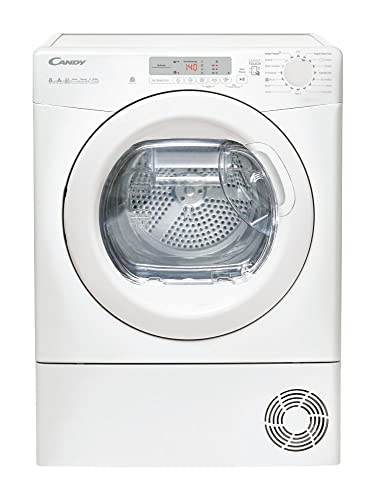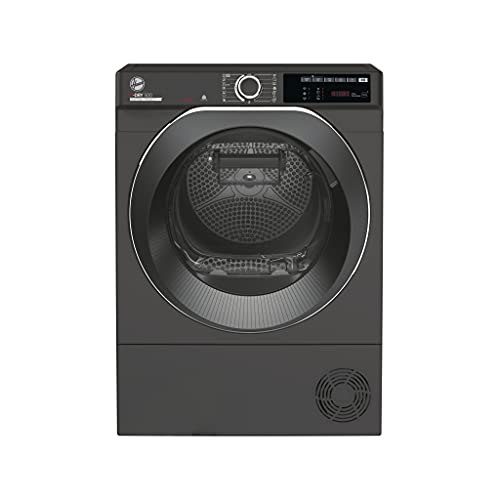The 10 Scariest Things About Dryers Heat Pump
페이지 정보
작성자 Luisa 작성일24-06-04 15:11 조회12회 댓글0건관련링크
본문
 Why Buy a Dryer With a Heat Pump?
Why Buy a Dryer With a Heat Pump?Similar to standard gas or electric dryers, heat pumps warm air, and then pumps it into the drum. The warm air is not forced into the vents, where it could cause problems like clogged filters for lint and energy waste.
Ventless heat pump dryers can be set up anywhere, as they can cool the air and also remove moisture. Learn about their other benefits.
Energy Efficiency
They consume only less energy-intensive conventional vented dryers consume. The reason is that they don't have to generate their own heat as do traditional dryers. They rely instead on a closed loop refrigerant loop system, similar to an air conditioner. The air that is pushed through the evaporator coil of the dryer warms it and absorbs moisture. The moisture then flows into a pan that can be empty manually or connected to the drainage tube. The cool air then flows through the coils, causing the cycle.
According to Energy Star, heat pump Dryers Heat Pump [Www.40Billion.Com] consume about two-thirds of the energy per load as conventional dryers. The dryers do not require venting. This eliminates the possibility of lint accumulating in the vent and reduces the risk of fire. Also, since they're not ventless they can be used in any area that is connected to an electrical outlet, which makes them ideal for apartments and other cramped spaces.
In addition, the energy efficiency of a heat pump dryer translates into lower utility bills. This is especially important considering the rising cost of electricity. Even with the higher upfront purchase price of dryers that use heat pump typically, they pay for themselves in less than two years thanks to their significantly reduced operating costs.
Electric heat pump dryers consume less energy than condensing dryers which don't use heat pumps. But their cycle times are slightly longer than those of conventional dryers.
If you are committed to reducing your energy consumption using a dryer that uses a heat source, it's the best heat pump tumble dryer option. It is the most efficient method to do laundry and can be powered by the electricity generated by solar energy or other renewable resources. If you are moving towards an all-electric home, then a heat pumps clothes dryer should be part of it. It can be powered using the same renewable energy as your other appliances such as washers and refrigerators. It can help you reach your goal of having an all-electric house by 2050.
Convenience
Many dryers that use heat pumps come with sensors for moisture that can aid in preventing over drying and help save energy and time. Some dryers heat pumps also come with anti-wrinkle technology as well as smart settings that can be controlled via smartphone. Some models that are ENERGY STAR certified models can reuse the water used to remove humidity from the air during drying and save you money on disposal costs.
Heat pump dryers also offer more flexibility than vented or ducted clothes dryers since they don't require venting. This makes them ideal for a variety of locations in the home, such as basements and attics. The only drawback is that they take longer drying laundry than conventional dryers that use electricity because they don't make use of as much heat.
Heat pump dryers make use of the same air to dry clothes rather than using hot air like conventional electric or gas dryers. A compressor presses the coolant in one set of coils to release heat. Then it is pumped through an expander valve before flowing into another set of coils, which cools and absorbs moisture. This cycle is repeated until the load is dried completely. This is a far more energy-efficient method than traditional dryers which waste energy by heating air continuously to dry the laundry.
The use of heat pump dryers may be expensive at first however, they are a green alternative. However, they'll be able to pay for themselves in the long run by reducing your energy bills. Many manufacturers offer rebates and incentives to help offset the initial cost of a heat pump clothes dryer.
Certain heat pump dryers require a drain hose to dispose of the water used to remove moisture from the air and can increase the cost of the device. Although this isn't an enormous disadvantage, it could be a major issue for some customers.
Heat pump dryers have many advantages that are worth considering. They are gentle on fabric which helps to extend their lifespan and look nice in the process. They are also more energy efficient and can cut your energy costs up to 28% when compared to conventional dryers.
Durability
These dryers cut down on energy costs and extend the life of clothes by reusing heat from air. These dryers use the same process to eliminate water from clothing as vented models, but do not release humid air outside. Instead, they recycle warm air that has already been cool. They dry clothes more slowly than vented dryers, because they operate at lower temperatures.
These dryers don't require vents and can be positioned anywhere with electricity and water. These dryers are great for tiny homes, living units (e.g. an apartment above the garage) and even additions. Some models are able to fit into tight spaces and some can be stackable. Larger ventless heat pump dryers which can earn the Energy STAR label, have more capacity.
These appliances tumble clothes inside an heated drum, much as traditional vented dryers. The hot drum heats as the clothes spin and squeezes out the moisture. This water is then trapped in a separate tank or drain hose, which needs to be drained manually or by a system. Some dryers have a water tank that must be regularly drained, while others have a self-draining system that requires less maintenance.
The dryers that use heat pumps are more complicated and require more maintenance than vented dryers. They also have higher repair costs. These machines are nonetheless worth the investment if you are looking to save money and lower your utility costs.
The most important thing to take into consideration when deciding whether to buy a heat pump dryer is your routine for washing and budget. If you're a frequent laundry user and prefer shorter drying times then a traditional vented dryer is your best option. If you're looking to save money over the long term and don't mind drying times of 2.5 hours, a heat pump dryer is a great choice. These dryers can save you up to $2,600 per year in energy costs and last twice as long as traditional vented models.
Noise
The majority of heat pump dryers are quieter than their traditional counterparts, but noise levels can vary between brands and models. Understanding the way noise is measured and the comparison of noise ratings can help consumers select the model that best fits their needs and preferences. If noise is a concern, it may be better to schedule the use of your dryer at off-peak times when sleep and household activities patterns are less disturbed. The dryer could also be set up in a location that reduces vibration and isolated from the floor using mats made of rubber or anti-vibration pads.
The grinding or squeaking sounds could be a sign that the drum in the dryer is overloaded and struggling to turn. To avoid this, follow the instructions provided by the manufacturer for the maximum capacity of the dryer, and make sure you don't overfill it. Balancing larger items, such as comforters and blankets, by balancing them with a few smaller items can also improve performance and reduce squeaking and grinding noises during the drying cycle.
Some heat pump dryers produce an audible gurgling sound when they are in the drying process. This is normal and an indication that the dryer is operating as intended. If the sound becomes more loud or continues to recur, it could be an indication that your dryer's lint filters or Heatpump dryer vents are blocked and require cleaning.
It is essential to clean regularly the lint filter as well as the dryer vent to ensure they are free of blockages and maintain a properly functioning heat pump dryer. This will help to reduce noise during the drying cycle and can extend the life of the appliance.
 Certain heat pump dryers boast that they can run on conventional 120 volt and 15 amp electrical circuits. This is a great option for older homes with fewer power outlets. But this is an untrue claim in advertising since the majority of electric dryers require 220-volt, 30-amp circuits to operate correctly. A heat pump dryer that is running on a standard circuit increases the chance of electric shock and fire. It is recommended to have a professional electrician install a heat-pump dryer in a house that is already in use.
Certain heat pump dryers boast that they can run on conventional 120 volt and 15 amp electrical circuits. This is a great option for older homes with fewer power outlets. But this is an untrue claim in advertising since the majority of electric dryers require 220-volt, 30-amp circuits to operate correctly. A heat pump dryer that is running on a standard circuit increases the chance of electric shock and fire. It is recommended to have a professional electrician install a heat-pump dryer in a house that is already in use.댓글목록
등록된 댓글이 없습니다.




